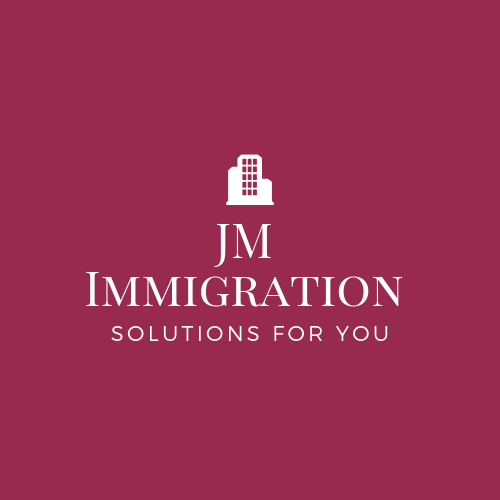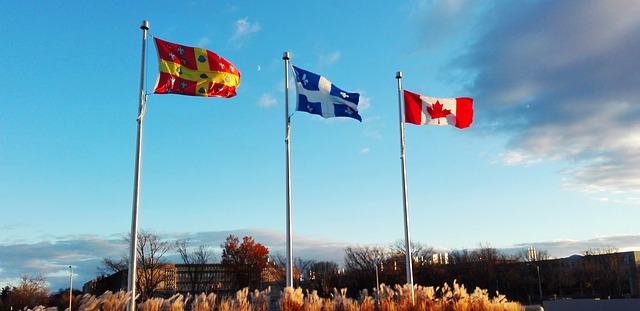September 18 Express Entry draw issues 3,600 invitations to apply (ITAs) for PR
The Express Entry draw of today, September 18th, issued 3,600 invitations to apply (ITAs) for permanent residence (PR) to candidates who had a comprehensive Ranking System (CRS) score of 462. The score in this draw was lower by 1 point from the last draw on September 4th.
Toronto immigration firm charges $170K for fake Canadian job
A Toronto based immigration firm offered a job to an undercover CBC journalist who posed as a Chinese national looking for permanent residence in Canada for $170,000.
Canadian diplomatic missions from around the world were questioned about the integrity of these job offers and they identified prevalent inherent difficulties.
• Hong Kong reported "high rates of fraud or suspected fraud and only 15-22 per cent of AE offers were found to be genuine."
• Beijing said that "21 of the 33 files chosen for review found the applicants were not working for the employer or had never worked for the employer."
• New Delhi found that "over 60 per cent of the cases never worked for the employers in Canada."
• Seoul said "that out of 29 cases landed in 2008, only eight appeared bona fide, 12 cases found collusion between the employer and/or applicant and/or agent."
The federal government did not provide recent numbers when asked. Shannon Ker, a spokesperson for Immigration, Refugees and Citizenship Canada (IRCC) wrote that "the vast majority of applications received by IRCC are genuine." Adding, IRCC has trained its employees "how to detect fraud and the appropriate steps to take when there is sufficient cause to suspect it is taking place."
Kurland said that, in his view, Ottawa and provincial regulators aren't doing enough. However, "there is an actual anxiety that the province and the feds have insufficient enforcement resources to keep things honest, and a lack of enforcement is an invitation for abuse”.
After you’ve checked to make sure you’re working with an authorized legal services provider, Immigration Consultant (RCIC) or a lawyer, it’s always a good idea to make sure you understand their process, timeline, and fee structure before getting started.
Read the article here:https://www.cbc.ca/news/canada/saskatchewan/immigration-jobs-fees-china-canada-1.5272394
If you are in doubt with regards to your immigration situation call/text/email JM Immigration Inc., and speak to a licensed immigration consultant (RCIC). Alternatively, send us a message on the website – www.onecanadavisa.com and you will receive a response within 12 hours.
10 September Two-year pilot to facilitate immigration of certain sponsored family members from lifetime ban now in effect
When a person applies to become a permanent resident, they are required to declare all of their family members (spouse, common-law partner, dependent children, dependent child of a dependent child), even if they are not accompanying the principal applicant to Canada. Also, they also need to be examined in some cases. This has been the norm in order that IRCC has all relevant information to make a decision on their permanent residence application and mainly to ensure that these family members would not make the principal applicant ineligible or inadmissible.
Currently, the consequence for failing to have a non-accompanying family member examined is a lifetime bar on being able to sponsor that family member. These regulations encouraged full disclosure by applicants, to enhance the overall integrity of Family Class immigration, and to protect the health, safety and security of Canadians.
A new two-year pilot began on September 9, and will now allow sponsorship applications for certain family members who would normally be banned from obtaining permanent residence under IRCC regulations.
IRCC will grant an exemption to foreign nationals (people) who meet all of the following conditions:
• The foreign national has applied as a spouse or a common-law partner in the Spouse or Common-Law Partner in Canada class or as a spouse, a common-law partner or a dependent child in the Family Class;
• The foreign national has a sponsor who:
1. Applied for, and was granted permanent residence status as a Convention refugee or a person in similar circumstances; or,
2. Was granted permanent residence after having been determined to be a protected person; or,
3. Was determined to be a member of the Family Class, and was granted permanent residence as a sponsored spouse, common-law partner, conjugal partner, or dependent child; or,
4. Was determined to be a member of the Spouse or Common-Law Partner in Canada Class and was granted permanent residence as a sponsored spouse or common-law partner.
• The foreign national, if declared and examined at the time their sponsor immigrated to Canada, would not have made their sponsor ineligible in the class that the sponsor applied for.
The pilot is effective from September 9, 2019, and ends on September 9, 2021.
Quebec – Province promises to help businesses recruit temporary foreign workers
The government of Quebec has announced nearly $21 million to help private businesses recruit and integrate temporary foreign workers as the province struggles with a growing labour shortage.
Labour Minister Jean Boulet, said that “the funding will help cover the costs of companies’ recruitment missions and provide financial assistance of up to $1,000 per worker for relocation.”
Under the plan, Boulet told reporters on Monday he believes the province will aid 2,000 businesses in recruiting temporary foreign workers within the next two years.
Boulet said that “The recruitment of temporary foreign workers is an option that more and more businesses are turning to in their efforts to address labour shortages.”
As part of the plan, the government is also investing $34 million to improve the newcomers’ integration in Quebec.
The additional funding is also being cautiously welcomed by the Comité consultatif personnes immigrants (CCPI), a commission that looks into the labour problems facing immigrants.
The government says its immigration policies will ensure immigrants are properly integrated and that those admitted meet existing labour needs in the province.
Express Entry - Alberta PNP Issues Invitations to 121 Candidates
On August 15th, Alberta issued 121 Notifications of Interest (NOIs) to Express Entry (EE) stream candidates with Comprehensive Ranking System (CRS) scores as low as 400 in its latest draw.
Prior to this on August 7, Alberta issued 35 invitations to candidates who had a CRS score of 352.
The EE stream of Alberta’s PNP is connected to the federal EE system, which means that the candidate must first create an EE profile in order to be considered for a PNP nomination. It is worth mentioning that to be eligible candidates do not require to have a job offer or previous work experience in Alberta. The key is that they should be working in an occupation that supports the economic development and diversification priorities of the province of Alberta.
The Express Entry stream of Alberta PNP gives priority to candidates with:
• A job offers and/or work experience in Alberta;
• A degree from a Canadian post-secondary institution and a valid job offer; or
• A parent, child or sibling already living in Alberta.
EXPRESS ENTRY DRAW: September 4, 2019
The Express Entry draw of today, September 4th, issued 3,600 invitations to apply (ITAs) and were issued to candidates who had a comprehensive Ranking System (CRS) score of 463.
The score in this draw went up by 6 points from the last draw on August 20th.
Saskatchewan - 150 candidates invited to apply for Express Entry and Occupations In-Demand streams
Recently, Saskatchewan Immigrant Nominee Program (SINP) issued 150 invitations to apply in the latest draw. The candidates who received the invitation to apply (ITA) were in the Occupations In-Demand and Express Entry categories as follows:
• Occupations In-Demand - 105
• Express Entry – 45
All the candidates had to have a minimum Saskatchewan Expression of Interest score of 78 points from 100 points and was based on education, language proficiency (English/French), work experience and having a family member in the province.
It is worth noting that the minimum expression of interest (EOI) points went up to 78 effective August 15, 2019. In the prior draws in July it was 74 points.
Find out if you qualify to immigrate to Canada by either calling us at 1-905-820-3924 or WhatsApp at 1-416-904-3815, by email at info@onecanadavisa.com or by completing our free on-line evaluation at www.onecanadavisa.com . We will get back to you within one day.
Saskatchewan’s new Expression of Interest System
Saskatchewan’s new Expression of Interest system for Express Entry, Occupations In-Demand sub-categories has more benefits that the previous first-come, first-served model.
The first-come, first-served model that was used for the international skilled worker sub-categories had prevented many qualified candidates from applying as they missed the date for submitting their applications.
The Occupations In-Demand sub-category is for eligible skilled workers who have the required amount of work experience in one of Saskatchewan’s in-demand occupations.
Applicants who are interested need to register a profile with the Saskatchewan Immigrant Nominee Program (SINP). They are provided with a ranking score that is based on their answers to questions relating to work experience, education and English or French language proficiency, and a couple other factors.
Applicants who score 60 points on Saskatchewan’s assessment grating are entered into its pool of candidates for the Express Entry and Occupations In-Demand sub-category. Applicants who are selected are invited to apply for a provincial nomination through the usual draws.













